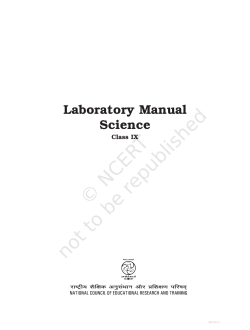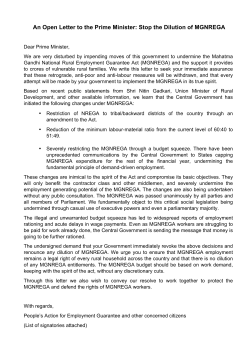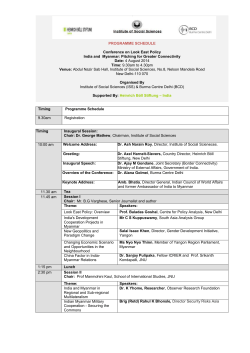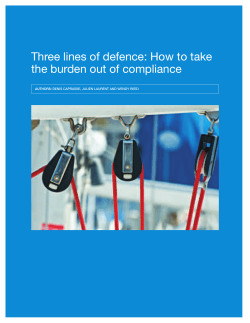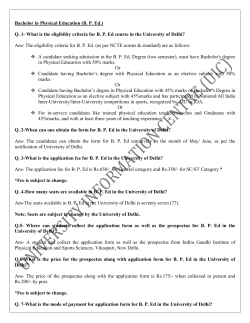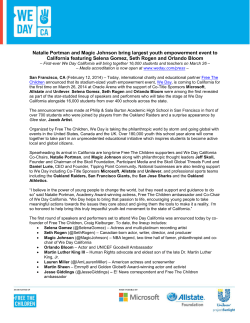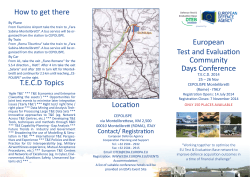
Enhancing India-Central Asia Engagement: Prospects and Issues
Enhancing India-Central Asia Engagement: Prospects and Issues Enhancing India-Central Asia Engagement: Prospects and Issues Editor Prof Nirmala Joshi United Service Institution of India (USI) Vij Books India Pvt Ltd New Delhi (India) Published by Vij Books India Pvt Ltd (Publishers, Distributors & Importers) 2/19, Ansari Road Delhi – 110 002 Phones: 91-11-43596460, 91-11-47340674 Fax: 91-11-47340674 e-mail: vijbooks@rediffmail.com we b: www.vijbooks.com Copyright © 2014, United Service Institution of India, New Delhi ISBN: 978-93-82652-34-2 All rights reserved. No part of this book may be reproduced, stored in a retrieval system, transmitted or utilized in any form or by any means, electronic, mechanical, photocopying, recording or otherwise, without the prior permission of the copyright owner. Application for such permission should be addressed to the publisher. The views expressed in this book are those of the contributors in their personal capacity. These do not have any official endorsement. CONTENTS Approach Paper Participants ix xiii Inaugural Session Welcome Address Lt Gen PK Singh, PVSM, AVSM (Retd) Director USI 1 Key Note Address Shri Sanjay Singh, Secretary (East), Ministry of External Affairs, Government of India 3 Session I Regional Security Perspectives. 7 Chairperson Ambassador Ashok Sajjanhar, IFS (Retd) 7 First Paper Regional Security Perspectives. 8 Maj Gen BK Sharma, AVSM, SM** (Retd) Second Paper Security Perspectives for Southwest 21 Asia-Central Asian Region. Ambassador Yogendra Kumar, IFS (Retd) Third Paper Regional Security Perspective: The Role 27 of Major Powers. Lt Gen PC Katoch, PVSM, UYSM, AVSM, SC (Retd) Discussion Session I : Discussion. 35 vi Enhancing India Central Asia Engagement Session II Afghan Conundrum and Regional Approach. 40 Chairperson 40 Lt Gen Vinay Shankar, PVSM, AVSM, VSM (Retd) First PaperThe Afghan Conundrum and Regional 41 Approach. Ambassador Ashok Sajjanhar, IFS (Retd) Second Paper Afghanistan and Central Asia: Search 53 for New Civilized Paradigm of Regional Cooperation. Dr Skandarbek Ayazbekov Third Paper Turkmenistan’s Policy in the Region and 57 the Afghan Issue. Ambassador Sapar Berdiniyazov Fourth Paper Regional Security of Central Asia: Problems and Prospects. Dr (Ms) Zamira Muratalieva 66 Fifth Paper Uzbek Perspectives on the Afghan Conundrum. Mr Aziz Vasikovich Rasulov 73 Discussion 78 Session II : Discussion. Session III Economic Engagement: Reconnecting Central Asia with India. 81 Chairperson Ambassador Phunchuk Stobdan, (Retd) 81 First Paper Enhancing India’s Economic Engagement with the CARs. 82 Professor Nirmala Joshi Contents vii Second Paper Economic Cooperation between India 89 and Kazakhstan: A Non Realised Partnership Potential. Mr Yuriy Makubayev Third Paper Economic Engagement: Reconnecting 95 Central Asia with India. Ambassador Parakhat H. Durdyev Fourth Paper Kyrgyz-Indian Economic Relations. Mr Evgeny Kablukov 100 DiscussionSession III : Discussion. 105 Valedictory Address Valedictory Address Ambassador Phunchuk Stobdan, (Retd). 109 Vote of Thanks Lt Gen PK Singh, PVSM, AVSM (Retd) 113 Director USI. APPROACH PAPER ENHANCING INDIA-CENTRAL ASIA ENGAGEMENT: PROSPECTS AND ISSUES 1. The Central Asian nations have been undergoing the process of nation building for the last two decades. Within this short period of time they have made considerable progress in many areas of human endeavour. As is the worldwide trend; economic, conventional security and non-traditional security issues have been the focus of much attention by the political leadership of these states. Every nation in the Central Asian region has unique characteristics and it pursues policies designed to benefit its people while attempting to enhance security and stability of the country and in the region. While Kazakhstan, Uzbekistan and Turkmenistan are rich in hydrocarbons, Tajikistan and Kyrgyzstan have abundant hydro power potential. Uzbekistan has the largest population base and Kazakhstan has the highest GDP in the region. Due to shared economic, political and security linkages of the past, they are mutually inter-dependent in many ways. Thus the Central Asian nations share a vision of regional cooperation. To take advantage of the rapidly globalizing world the 2. Central Asian nations have been broadening their engagement with the outside world. Seeking multi-faceted engagement with outside powers enables them to widen their policy choices and usher in a certain degree of equilibrium in the region. On the other hand many major powers have promoted a number of competing multilateral security and economic structures possibly to secure their own geopolitical interests. Nevertheless, Central Asian Republics view their membership of such structures as being advantageous to pursuing their interests in many ways. Despite a rich history of economic and cultural linkages 3. with Central Asian Republics in the past the Indian engagement in x Enhancing India Central Asia Engagement the current times leaves lot to be desired. However, India considers Central Asia as part of its extended/ strategic neighbourhood. Central Asian Republics and India have many mutual interests. Their relations are based on a shared commitment to open progressive societies, secularism, democracy, and improving the lot of the common people and the same has been reinforced by similarity of views in the fight against terrorism, drug trafficking and in many other areas of security. The unstable situation in Afghanistan is inextricably linked 4. with India’s and Central Asian Republic’s security concerns, as Afghanistan is part of the larger Central Asian construct. In Afghanistan the three major challenges of governance, neutralizing the Taliban and economic development continue to be issues of grave concern for the people of Afghanistan and for countries that have a stake in the stability and security of that nation. The last decade has seen positive as well as not so positive developments in Afghanistan. How the dice will roll after 2014 is a subject of intense speculation in capitals around the globe. While security and stability in the region is of prime 5. importance to the Central Asian Republics and India, the other important driving factor of the emerging relationship is the economic engagement. India seeks partnership within areas such as information technology, science and technology, knowledge industries etc. Conversely, India’s increasing need for energy can be addressed by the energy-rich Central Asian countries. In the energy sector, there have been missed opportunities in the past, but India is striving to revitalize its interaction with concerned countries of Central Asia. Areas such as energy, non-conventional sources of energy and agro-based industries are promising spheres for cooperation. Joint ventures can be established which could benefit the entire region. However, lack of direct connectivity hampers interaction. There is a need to connect India with Central Asia through 6. multi-modal corridors particularly in the transport and trade sectors. In a sense, it recreates the past history of the region when robust trading activity was a dominant feature. Afghanistan was the fulcrum on which such activities were carried out in various directions. Approach Paper xi However, unstable situation in Afghanistan and obtuse policies of Pakistan prevent achievement of good connectivity between South and Central Asia. Broadly the seminar on enhancing India- Central Asia 7. engagement is built around the theme of security and stability, enhancing economic engagement including the energy sector and increasing connectivity to promote trade and commerce. These broad themes would contain many other sub-themes for widening the India-Central Asia engagement and the way ahead in Afghanistan. PARTICIPANTS Lieutenant General PK Singh, PVSM, AVSM (Retd) Lieutenant General PK Singh was commissioned as a 2/Lt in the Indian Army in 1967. He retired as an Army Commander (C-in-C) in 2008. He is a graduate of Higher Command Course and the National Defence College. His academic qualifications include MSc; MPhil and Post-graduate Diploma in Business Management. He took over as Director of the United Service Institution of India in January 2009. He is a member of the IISS, London and a Council Member of the Indian Council of World Affairs, New Delhi. He is an Adviser to the Fair Observer, USA. His articles have been published in “The NIDS Journal”, Tokyo; in “Global Security – The Growing Challenges”, USA; and has written for the book, “The China-India Nuclear Crossroads” edited by Lora Saalman. He has written a chapter for the forthcoming “Oxford handbook on UN Peacekeeping Operations”. He has edited the book “Comprehensive National Power – A Model for India” and the book “Civilian Capacity Building for Peace Operations”. He has participated in international conferences and seminars in USA, China, South Korea, Japan, Russia, Brazil, Norway, Sweden, Switzerland, South Africa, Ethiopia, Turkey, Germany, Austria, France, Bangladesh, Taiwan, Afghanistan, Kazakhstan, UAE, Australia etc. Shri Sanjay Singh, Secretary (East), MEA Mr. Sanjay Singh joined the Indian Foreign Service in 1976. He has served in Indian Missions in Mexico, Germany, Ghana and France and in the Ministry of External Affairs, New Delhi as Director in the Office of the External Affairs Minister and Joint Secretary and Head of Division dealing with Latin American Countries and later Establishment. From October 1997 to June 2001, he was xiv Enhancing India Central Asia Engagement India’s Consul General in Ho Chi Minh City and from July 2001 to August 2004, Deputy Chief of Mission in Paris. He served as Joint Secretary and Additional Secretary for Gulf and Haj from March 2005 to March 2009. He served as Ambassador of India to Iran from March 2009 to March 2011. He took over as Secretary (East) in the Ministry of External Affairs on 18th March 2011. Shri Sanjay Singh has a Masters in Physics from Delhi University. Shri Ashok Sajjanhar, IFS (Retd) Mr. Ashok Sajjanhar, who has Honours and Masters Degree in Physics from Delhi University, commenced his service career as a Staff Officer in Bank of India. Switching to a career in diplomacy, Mr. Sajjanhar has held various significant positions in Indian Embassies in Moscow, Teheran, Geneva, Dhaka, Bangkok, Washington, Brussels and Astana. Mr. Sajjanhar’s professional interests include International Trade and during his assignment in Geneva from 1988 to 1992, he made significant contribution while representing India in the Uruguay Round of Multilateral Trade negotiations. Mr. Sajjanhar has been an active participant in various International Seminars organized by UNCTAD and WTO. He has participated as Resource Person and Speaker at several Conferences on the Multilateral Trading System in Beijing, Kuala Lumpur, Bangkok, Papua New Guinea, Seoul, Geneva, etc. A keen proponent of Indian culture, he was the Director of Jawaharlal Nehru Cultural Centre in Moscow where he was instrumental in ushering in a new paradigm in cultural diplomacy. Mr. Sajjanhar was the Deputy Chief of Mission as well as the Deputy Permanent Representative of India to UN-ESCAP during his assignment in Bangkok from 2000 to 2003. He was Deputy Chief of Mission in the Mission to European Union, Belgium and Luxemburg from 2005 to 2007 and Ambassador of India to Kazakhstan from 2007 to 2010. Major General BK Sharma, AVSM, SM** (Retd) Major General BK Sharma was commissioned in infantry in 1976 and commanded 6 SIKH LI. He holds double degree of MPhil and is pursuing his PhD in Geopolitics in Central Asia. He is a graduate of Participants xv Staff College, Higher Command and National Defence College. He attended a course in International Peacekeeping in Santiago (Chile) in the year 2000. He has tenanted prestigious command, instructional and staff appointments, notably, Senior Faculty Member at National Defence College, New Delhi, Command of a Mountain Division and Brigadier General Staff (both assignments on China Border) ‘Principal Director Net Assessment at HQ Integrated Defence Staff, Defence Attaché in Embassy of India in Kazakhstan and Kyrgyzstan, and UN Military Observer in Central America. He regularly contributes articles to prestigious journals. He lectures at prestigious think tanks in India, UN Research and Training Centre, New Delhi and at various universities in India and abroad. He regularly participates in international seminars. He was awarded AVSM, SM and bar to SM by the President of India for courage and exceptional devotion to duty. Presently, he is working as Distinguished Fellow at the United Service Institution of India, New Delhi. He specializes in Net Assessment, Scenario Building and Strategic Gaming. He conducts strategic games for the National Defence College and Higher Command Courses of the Army, Navy and Air Force. Shri Yogendra Kumar, IFS (Retd) Experience: Important Service Appointments 1987-1990 Consul General of India for the Central Asian region, Tashkent, USSR. 1990-1993 First Secretary/Counsellor, High Commission of India, Islamabad. 1993-1996 Director, Central Asia Division, Ministry of External Affairs, New Delhi. 1996-2000 Minister (Political Affairs), Embassy of India to the European Union, Belgium and Luxembourg, Brussels. 2000-2003 Ambassador of India in Tajikistan. xvi Enhancing India Central Asia Engagement 2003-2006 High Commissioner of India in Namibia. 2006 -2008 Senior Directing Staff [Foreign Service], National Defence College, New Delhi. 2008-2009 Additional Secretary [Multi-lateral Economic Relations], Ministry of External Affairs, New Delhi. 2009-2012 Ambassador of India to the Philippines with concurrent accreditation to Palau, Federated States of Micronesia and the Marshall Islands. He speaks Russian language fluently and is also familiar with Tajik language. He retired from the Indian Foreign Service on 29 February, 2012. Lieutenant General PC Katoch, PVSM, UYSM, AVSM, SC (Retd) Lieutenant General PC Katoch, PVSM, UYSM, AVSM, SC, superannuated as DG Information Systems of Indian Army in 2009. A Special Forces officer, he fought in the 1971 India-Pakistan War, commanded an independent commando company in insurgency area, a Special Forces Battalion under the IPKF in Sri Lanka, a Brigade on Siachen Glacier, a Division in Ladakh and a Strike Corps in South Western Theatre. He has served as Defence Attache in Japan with accreditation to Republic of Korea and has held numerous operational staff appointments from Brigade HQ level to HQ IDS. An MSc in Defence Studies, he is an alumni of the Defence Services Staff College, Senior and Higher Command Courses and National Defence College. Post retirement, he has authored over 230 articles on military, security, topical and technical issues and as a Defence Analyst is a visiting scholar to foreign Think Tanks. He is member of the USI Council, an active participant in seminars at national and international levels and has co-authored a book on India’s Special Forces. Participants xvii Lieutenant General Vinay Shankar, PVSM, AVSM, VSM (Retd) Lieutenant General Vinay Shankar retired from the Indian Army in December, 2000 after 40 years of distinguished service. He has taken part in the wars of’ 62, 65 and 71, and was involved in counter insurgency operations in Nagaland and Manipur. Lt Gen Shankar’s last appointment was the Director General of Artillery, during which he oversaw the employment of artillery during the Kargil War. For his distinguished services he has been awarded the Param Vashist Sewa, the Ati Vashist Sewa and the Vashist Sewa Medals. Dr Skandarbek Ayazbekov He is the Vice President of the Military Strategic Studies Center under the Ministry of Defence of the Republic of Kazakhstan. As a legislator, his field is orientalist-cultural studies specialist and fine art expert. He has done Ph.D. and is professor in Art history. He worked in the National Academy of Science and Committee of national Security of the Republic of Kazakhstan. His field of research is theory and history of civilizations, modern aspects of globalization of international afairs, geopolitical trends of new world order, military and national security, as well as current issues of state development, economics, social, cultural and humanitarian development of the Republic of Kazakhstan. Ambassador Berdiniyazov Sapar After finishing secondary school, in 1965 he graduated from Turkmen State University Magtumguly. He started his working career in 1965 as a teacher of English language in secondary school and then as a staff member of Scientific Research Institute “Luch”. 1976 − 1977 − Joined Foreign Ministry of Turkmenistan, Ashgabat. Attache of Consular Department, USSR Ministry of Foreign Affairs. xviii Enhancing India Central Asia Engagement 1977-1983 − 1984-1985 − 1986-1989 − 1989-1990 − 1990-1995 − 1995-2012 − From 2012 July − Attache; USSR Consulate General in Pakistan (Karachi). Senior officer, Ministry of Foreign Affairs of Turkmenistan. Second Secretary, USSR Embassy in Afghanistan (Kabul). Assistant to the Director General of “Turkmenintorg”, Ashgabat. Head of the Department; Political Counsellor to the Minister of Foreign Affairs of Turkmenistan. Extraordinary and Plenipotentiary Ambassador of Turkmenistan to the Islamic Republic of Pakistan (Islamabad). Counsellor, Asia and Pacific Department Ministry of Foreign Affairs of Turkmenistan. Ms Zamira Muratalieva She is presently Scientific Secretary of the Institute for Strategic Analysis and Prognosis at the Kyrgyz-Russian Slavic University. Her nature of job includes general guidance on the timely and quality execution of scientific researches, organization and preparation of scientific and other reports of the Institute and preparation of proposals for training and development of scientific personnel. Shri Phunchuk Stobdan (Retd) Ambassador Phunchuk Stobdan is a distinguished academician, diplomat, author and national security expert. He is a specialist on Asian affairs covering Central Asia and Inner Asia, including Xinjiang, Tibet, Myanmar and the Himalayan region. He has written extensively on a wide range of security-related subjects in a number of professional journals on strategic affairs, books and newspapers, both in India and abroad. He served in Central Asia twice once, as Director at the Embassy of India, Almaty (1999 and 2002) and second time as Ambassador at the Embassy of India, Bishkek (20102012). He has also served as Joint Director in the Indian National Security Council. Between October 2006 and November 2007, he Participants xix was Director of the Centre for Strategic and Regional Studies at the University of Jammu. He is a member of the India International Centre, New Delhi. Professor Nirmala Joshi Professor Nirmala Joshi is Research Advisor at the USI. She is a former Head of the Department of Centre for Russian and Central Asian Studies at School of International Studies, Jawaharlal Nehru University, New Delhi. She has been Director, India-Central Asia Foundation, New Delhi and has done various assignments related to Russia and Central Asian studies. She has edited scores of books on India and Central Asia. Mr Yuriy Makubayev Mr Yuriy is a scholar at Military Strategic Studies Center (MSSC) of Republic of Kazakhstan. He is currently the Chief Editor of ‘Informational and Analytical Journal’. He is also a member of the editorial board of the Journal “Defence News”. He got his Master’s degree of Humanitarian Sciences in International Relations from LN Gumilyov Eurasian National University. Other Participants 1. Mr Aziz Vasikovich Rasulov, Uzbekistan. 2. Ambassador Parakhat H. Durdyev, Turkmenistan. 3. Mr Evgeny Kablukov, Kyrgyzstan.
© Copyright 2025

